
Exploring the Enchanting Surroundings of Bobo-Dioulasso
Bobo-Dioulasso, often called 'Bobo,' is Burkina Faso's second-largest city and a vibrant cultural hub. The city and its surroundings are perfect for tourists who want to experience the rich heritage, natural beauty, and warm hospitality of the region. Located in the southwestern part of the country, Bobo-Dioulasso offers a unique blend of traditional and modern attractions. The Grand Mosque of Bobo-Dioulasso is a must-see. This stunning example of Sahelian architecture dates back to the 19th century and stands as a symbol of the city's Islamic heritage. The mosque's mud walls and wooden beams are a testament to the traditional building techniques that have been preserved for generations. Just a short walk from the mosque is the Old Town, where visitors can wander through narrow streets lined with colonial-era buildings and bustling markets. Nature lovers will appreciate the lush landscapes surrounding Bobo-Dioulasso. The nearby Dafra River is a serene spot for picnics and relaxation. For a more immersive experience, head to the sacred fish pond at Dafra. Here, you can witness a unique ritual where locals feed the sacred catfish, believed to have spiritual significance. Another natural attraction is the Karfiguéla Waterfalls, located about 50 kilometers from Bobo. These waterfalls are a popular spot for swimming and picnicking, offering a refreshing escape from the city's heat. Bobo-Dioulasso is also a melting pot of music and dance. The city is famous for its vibrant nightlife, where you can enjoy live performances of traditional and contemporary music. Don't miss the chance to experience a Balafon performance—an iconic West African musical instrument. The city's cultural festivals, like the Semaine Nationale de la Culture, are also worth planning your trip around, as they showcase the best of Burkinabe arts and culture.
Local tips in Bobo-Dioulasso surroundings
- Carry cash as ATMs can be scarce outside the main city.
- Hire a local guide for a richer, more informative experience.
- Visit the Grand Mosque early in the morning to avoid the crowds.
- Wear comfortable shoes for exploring the Old Town's narrow streets.
- Bring a swimsuit and picnic supplies when visiting Karfiguéla Waterfalls.
- Respect local customs and traditions, especially at sacred sites.
Exploring the Enchanting Surroundings of Bobo-Dioulasso
Bobo-Dioulasso, often called 'Bobo,' is Burkina Faso's second-largest city and a vibrant cultural hub. The city and its surroundings are perfect for tourists who want to experience the rich heritage, natural beauty, and warm hospitality of the region. Located in the southwestern part of the country, Bobo-Dioulasso offers a unique blend of traditional and modern attractions. The Grand Mosque of Bobo-Dioulasso is a must-see. This stunning example of Sahelian architecture dates back to the 19th century and stands as a symbol of the city's Islamic heritage. The mosque's mud walls and wooden beams are a testament to the traditional building techniques that have been preserved for generations. Just a short walk from the mosque is the Old Town, where visitors can wander through narrow streets lined with colonial-era buildings and bustling markets. Nature lovers will appreciate the lush landscapes surrounding Bobo-Dioulasso. The nearby Dafra River is a serene spot for picnics and relaxation. For a more immersive experience, head to the sacred fish pond at Dafra. Here, you can witness a unique ritual where locals feed the sacred catfish, believed to have spiritual significance. Another natural attraction is the Karfiguéla Waterfalls, located about 50 kilometers from Bobo. These waterfalls are a popular spot for swimming and picnicking, offering a refreshing escape from the city's heat. Bobo-Dioulasso is also a melting pot of music and dance. The city is famous for its vibrant nightlife, where you can enjoy live performances of traditional and contemporary music. Don't miss the chance to experience a Balafon performance—an iconic West African musical instrument. The city's cultural festivals, like the Semaine Nationale de la Culture, are also worth planning your trip around, as they showcase the best of Burkinabe arts and culture.
When is the best time to go to Bobo-Dioulasso surroundings?
Iconic landmarks you can’t miss
Bobo Dioulasso Airport
Discover the vibrant heart of Burkina Faso at Bobo Dioulasso Airport, your gateway to culture, adventure, and breathtaking landscapes.
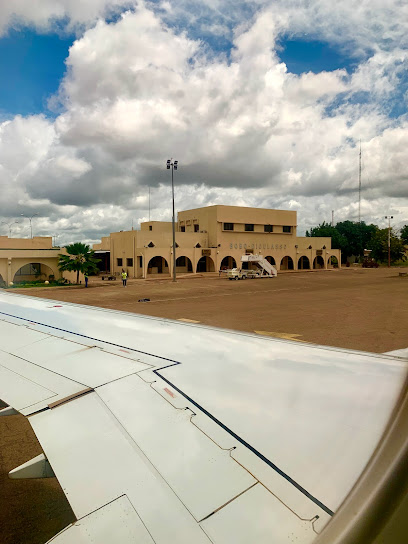
Place de la Femme
Experience the vibrant culture and history at Place de la Femme, the heart of Bobo-Dioulasso, Burkina Faso, where community and tradition intertwine.
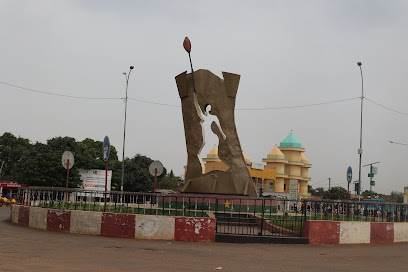
Grande Mosquée de Bobo-Dioulasso
Discover the Grande Mosquée de Bobo-Dioulasso, a stunning architectural gem and vibrant cultural landmark in Burkina Faso.
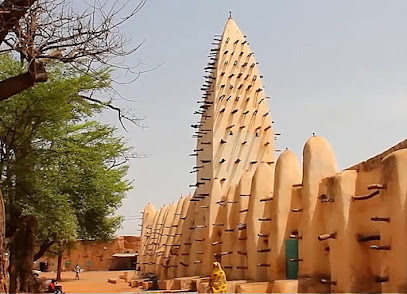
Grand marché de Bobo-Dioulasso
Discover the vibrant culture and rich flavors of Burkina Faso at Grand Marché de Bobo-Dioulasso, a market bursting with life and local treasures.
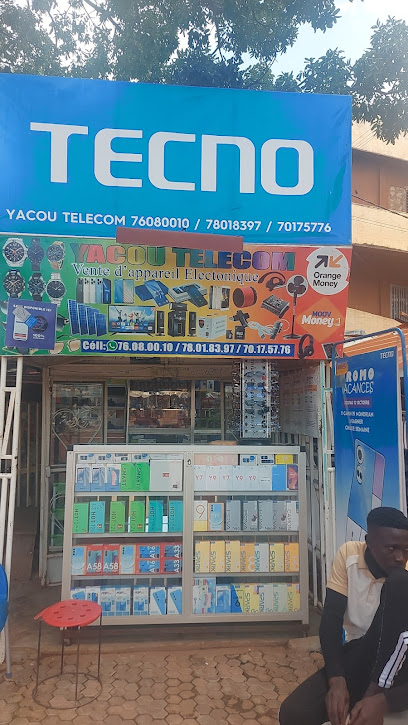
Bobo-dioulasso
Experience the vibrant culture, rich history, and warm hospitality of Bobo-Dioulasso, the economic heart of Burkina Faso.
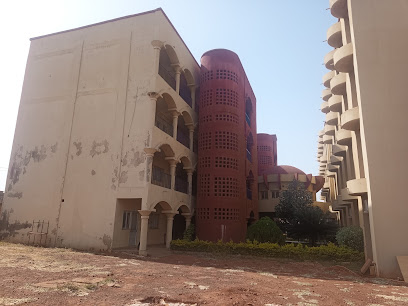
Ma Copine
Discover unique Burkinabé fashion at Ma Copine in Bobo-Dioulasso: a vibrant collection of traditional and modern styles showcasing local craftsmanship.
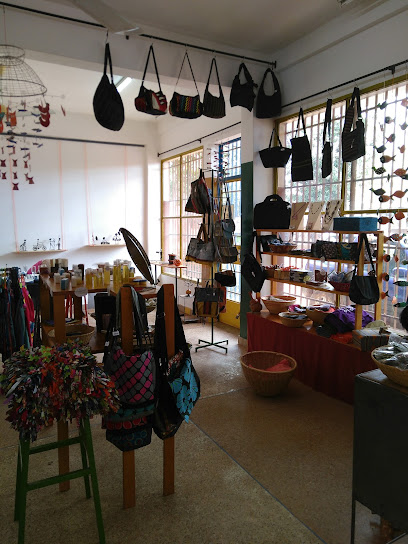
Bobo Dioulasso
Experience the delightful bakery scene and vibrant culture of Bobo Dioulasso, Burkina Faso – a city rich in flavors and tradition.
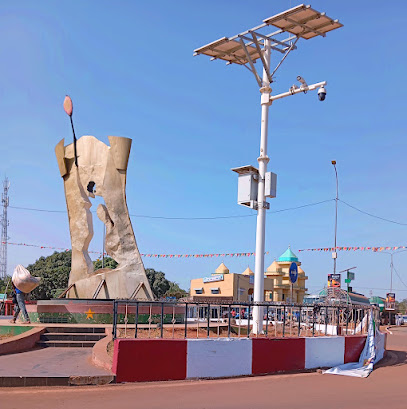
Paroisse Cathédrale Notre Dame des Lourdes
Discover the stunning Paroisse Cathédrale Notre Dame des Lourdes in Bobo-Dioulasso, a masterpiece of architecture and a center of local culture.
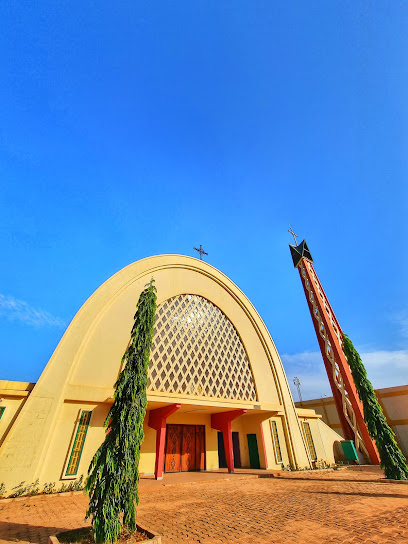
Rond Point de l'UA
Experience the vibrant culture of Bobo-Dioulasso at Rond Point de l'UA, a bustling hub of traditions, artistry, and community spirit.
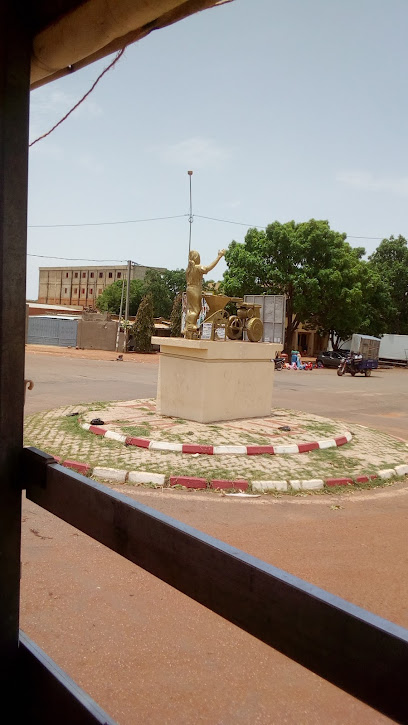
Bobonayebos Kimeno
Experience the spiritual serenity and intricate beauty of Bobonayebos Kimeno, a remarkable Hindu temple in the heart of Bobo-Dioulasso.

BAT.Com
Explore the rich architectural heritage and lively construction scene of Bobo-Dioulasso, a vibrant city where tradition meets modernity.

bobo dioulasso
Discover the architectural splendor and cultural significance of Bobo Dioulasso Mosque, a serene oasis in Burkina Faso's vibrant cultural capital.

Bobo dioulasso
Explore the vibrant culture, rich history, and local flavors of Bobo Dioulasso, Burkina Faso's enchanting cultural capital.

Village de la poésie, Medina Coura
Explore the vibrant artistry and cultural richness of Village de la Poésie in Bobo-Dioulasso, Burkina Faso, and immerse yourself in local traditions.

Unmissable attractions to see
Grande Mosquée de Bobo-Dioulasso
Discover the Grande Mosquée de Bobo-Dioulasso, an iconic example of Sahelian architecture and a vibrant center of Islamic culture in Burkina Faso.
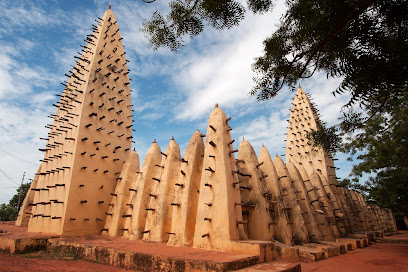
Grand marché de Bobo-Dioulasso
Experience the vibrant culture of Burkina Faso at the Grand Marché de Bobo-Dioulasso, a bustling marketplace filled with local crafts, flavors, and traditions.
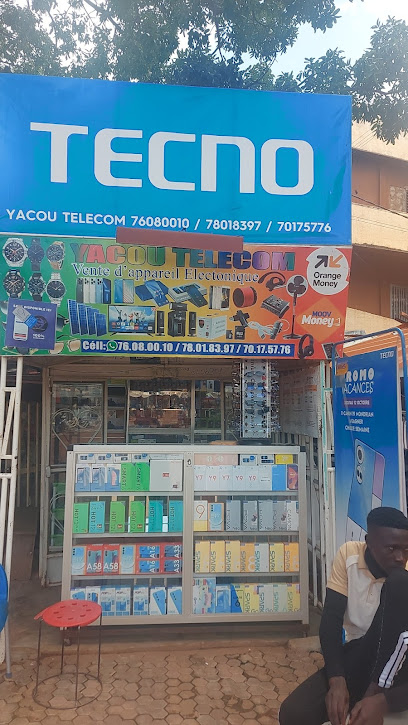
Essential places to dine
Restaurant DanKan
Discover the vibrant culinary scene of Bobo-Dioulasso at Restaurant DanKan, where local flavors meet international cuisine.
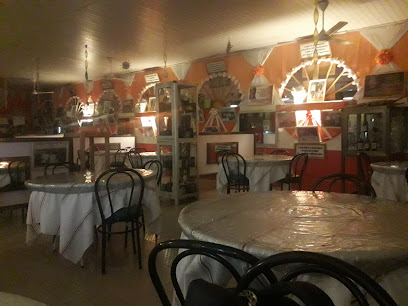
Restaurant Don Gregory
Experience authentic Burkinabe cuisine at Restaurant Don Gregory in Bobo-Dioulasso - where flavor meets tradition.
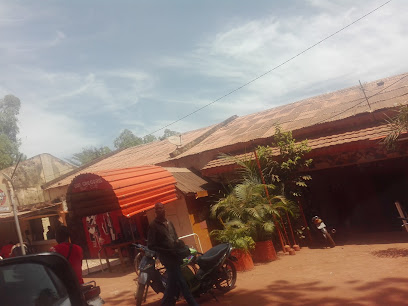
Le royal
Experience authentic Burkinabé flavors at Le Royal in Bobo-Dioulasso – where culinary tradition meets warm hospitality.
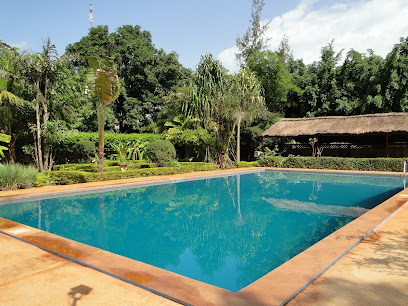
Amora restaurant
Experience authentic Burkinabé cuisine at Amora Restaurant in Bobo-Dioulasso – where local flavors meet welcoming ambiance.
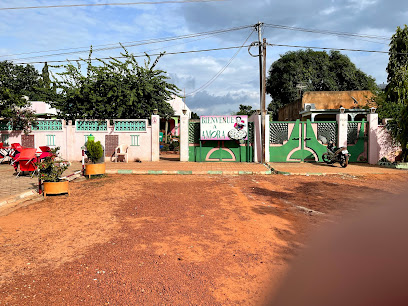
L'Eau Vive
Discover authentic Burkinabé cuisine at L'Eau Vive in Bobo-Dioulasso – where every dish tells a story.
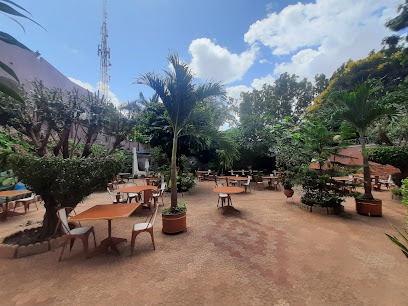
DANY ICE
Discover Dany Ice in Bobo-Dioulasso - where delightful pastries meet refreshing ice creams in an inviting atmosphere.
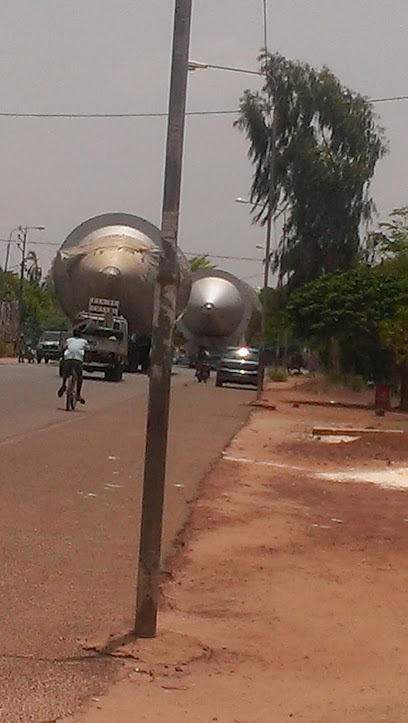
Restaurant Velar
Experience authentic Burkinabé cuisine in a cozy setting at Restaurant Velar, Bobo-Dioulasso’s culinary treasure.
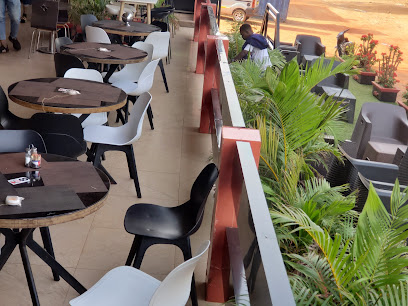
Taste of Tandoor & Multi cuisine Indian restaurant
Discover authentic Indian flavors at Taste of Tandoor in Bobo-Dioulasso – where every meal is a celebration of spices and tradition.
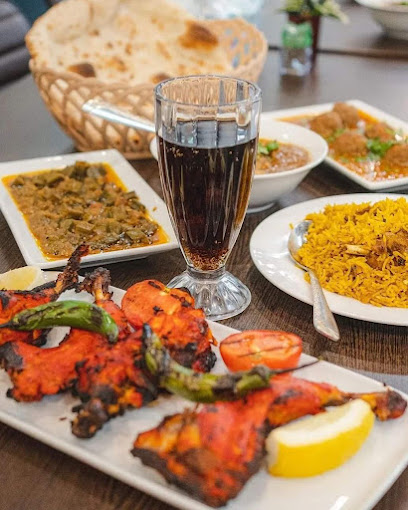
Restaurant Dankan
Experience the vibrant flavors of Burkina Faso at Restaurant Dankan – where local cuisine meets international flair in Bobo-Dioulasso.
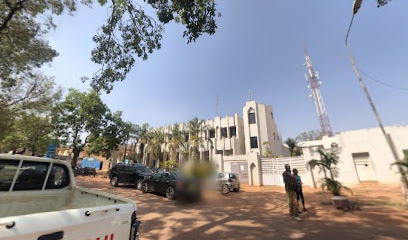
Restaurant Akwaba
Experience authentic Burkinabé cuisine at Restaurant Akwaba in Bobo-Dioulasso – where tradition meets taste.
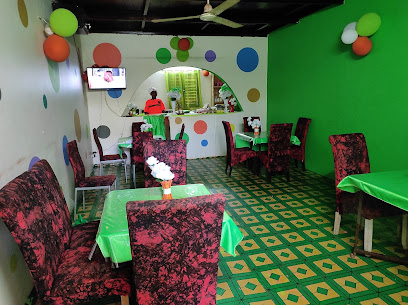
Te quiero
Experience authentic Burkinabé cuisine at Te Quiero in Bobo-Dioulasso – where tradition meets flavor in every dish.
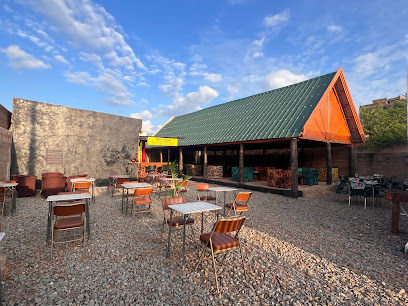
Maquis Resto La Présidencielle
Experience authentic Burkinabé cuisine at Maquis Resto La Présidencielle in Bobo-Dioulasso - a culinary gem filled with vibrant flavors and culture.
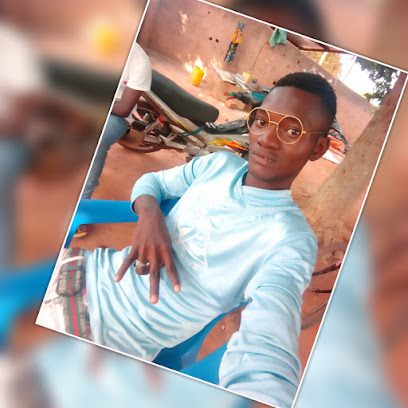
PATRONAT
Discover the essence of Burkinabé cuisine at Patronat in Bobo-Dioulasso – where every meal tells a story.
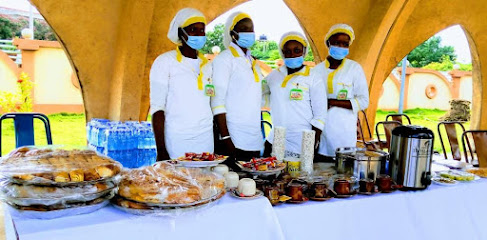
Restaurant SHALOM
Experience authentic Burkinabé cuisine and international flavors at Restaurant SHALOM in Bobo-Dioulasso.
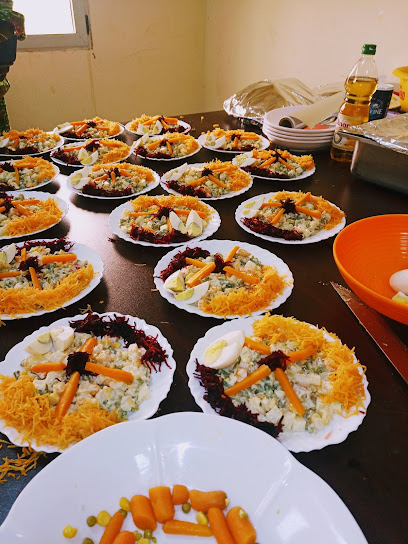
Maquis restaurant chez Mme Zanga
Discover authentic Burkinabé cuisine at Maquis Restaurant chez Mme Zanga in Bobo-Dioulasso – where tradition meets flavor!
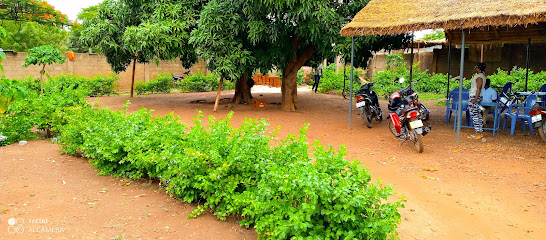
Markets, malls and hidden boutiques
Grande Mosquée de Bobo-Dioulasso
Explore the Grande Mosquée de Bobo-Dioulasso, a majestic mosque showcasing unique Sudanese architecture and vibrant cultural heritage in Burkina Faso.
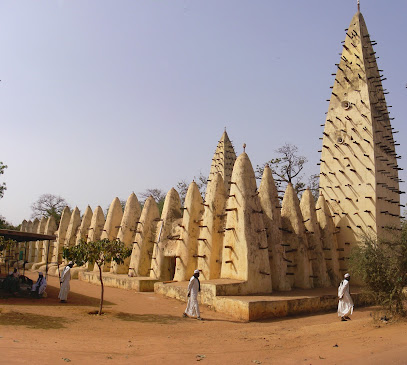
Bobo-dioulasso
Experience the cultural vibrancy and rich traditions of Bobo-Dioulasso, Burkina Faso's artistic heartbeat, with lively markets and stunning architecture.
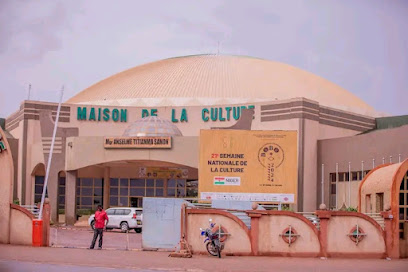
Restaurant Velar
Experience the flavors of Bobo-Dioulasso at Restaurant Velar, where local cuisine meets international tastes in a cozy setting.
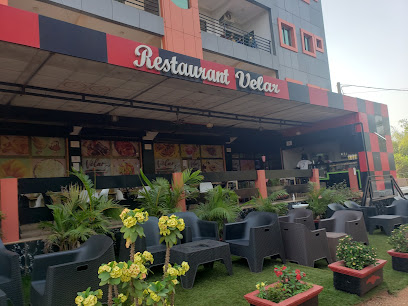
Librairie DIACFA
Discover the charm of Bobo-Dioulasso at Librairie DIACFA, a delightful bookstore offering a rich selection of literature and local culture.
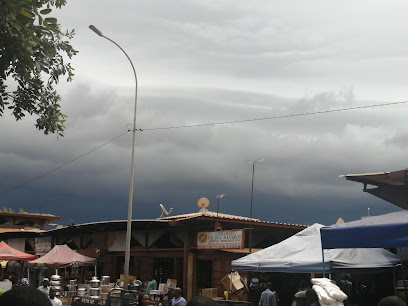
SUPER BOUTIQUES YAMEOGO & FR£R£
Discover a vibrant supermarket in Bobo-Dioulasso offering local and international products, perfect for tourists seeking a taste of Burkinabé culture.
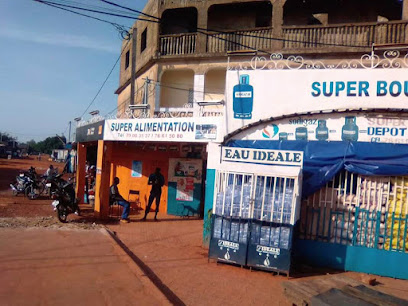
Bobo Dioulasso
Experience the vibrant culture and history of Bobo Dioulasso at its bustling Train Station, a gateway to adventure in Burkina Faso.
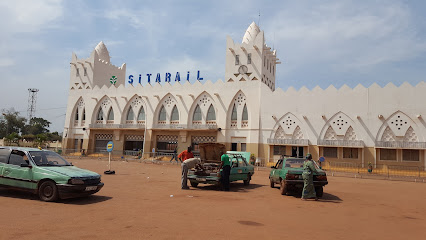
Ma Copine
Explore the vibrant fashion scene at Ma Copine, a unique clothing store in Bobo-Dioulasso, celebrating local craftsmanship and style.
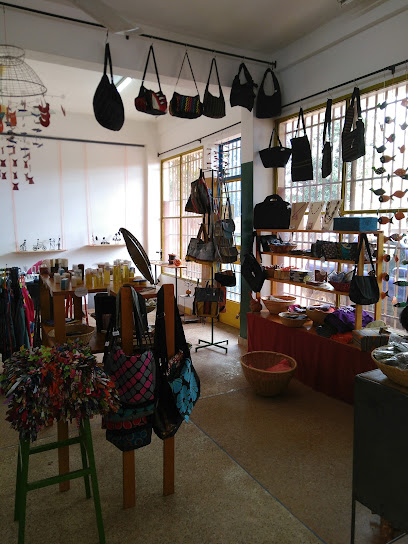
Hamad bk shopping
Explore Hamad BK Shopping for unique gifts and authentic Burkinabé crafts in Bobo-Dioulasso, embracing local culture and artistry.
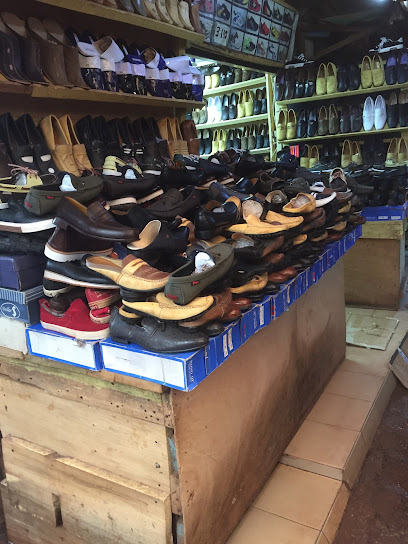
Bijouterie Moderne du Faso
Explore Bijouterie Moderne du Faso in Bobo-Dioulasso for exquisite handcrafted jewelry that embodies the heart of Burkinabé culture and artistry.
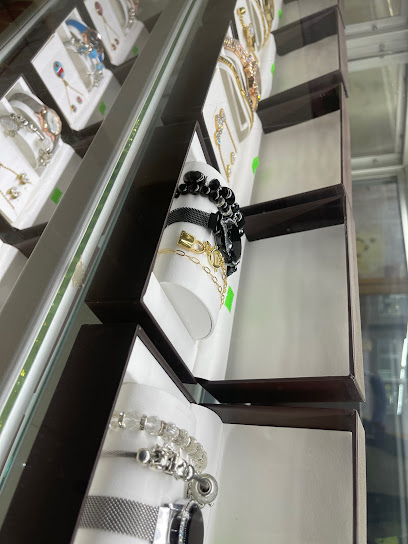
SAYOUBA BOUTIQUE
Discover the artistic charm of Bobo-Dioulasso at SAYOUBA BOUTIQUE, where unique posters and local creativity come together.
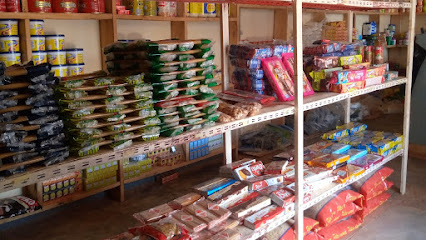
Bobo dioulasso
Discover the joy of family fun at the playground in Bobo Dioulasso, a vibrant hub of culture and community in Burkina Faso.
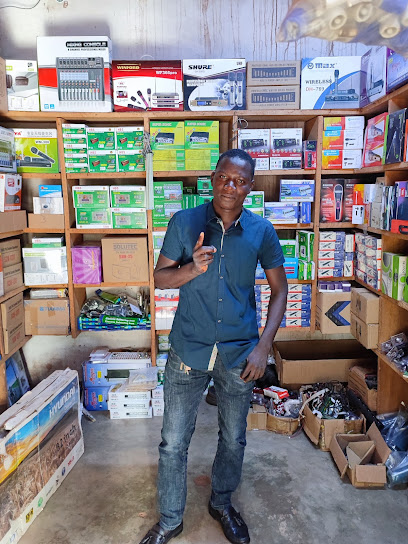
Bazaria bobo dioulasso
Explore the artistic brilliance of Bazaria Bobo Dioulasso, where exquisite lighting meets local artistry in a vibrant cultural hub.
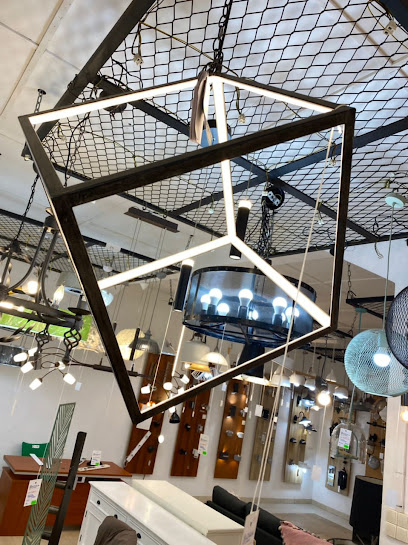
Luumoshop - La boutique en ligne pour les amateurs d'artisanat
Explore Luumoshop: Your gateway to authentic handcrafted treasures in Bobo-Dioulasso, showcasing the art of local artisans and vibrant cultural heritage.
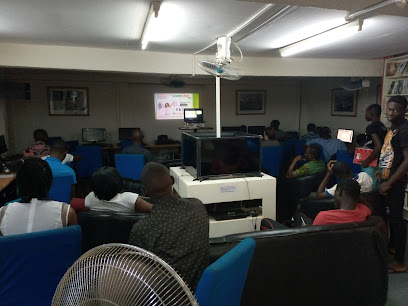
Paradis des bonnes affaires
Discover unique souvenirs and local crafts at Paradis des Bonnes Affaires, the premier gift shop in Bobo-Dioulasso, reflecting Burkinabé culture.
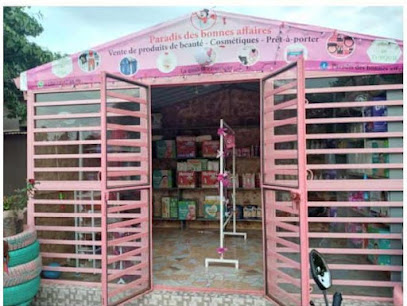
Boutique Parisien
Discover the local flavors and vibrant culture of Bobo-Dioulasso at Boutique Parisien, the city's beloved supermarket.
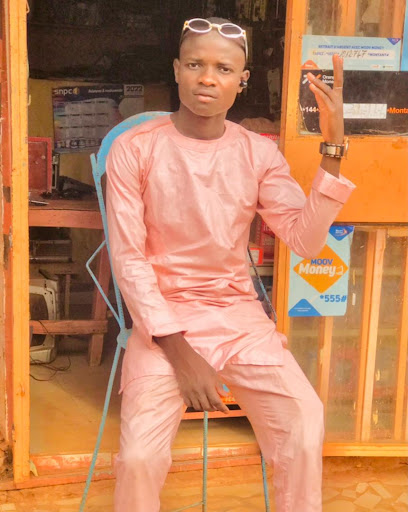
Essential bars & hidden hideouts
Bar Dancing Le Pylône
Discover the lively nightlife at Bar Dancing Le Pylône in Bobo-Dioulasso, a vibrant spot for locals and tourists to enjoy drinks, music, and dance.
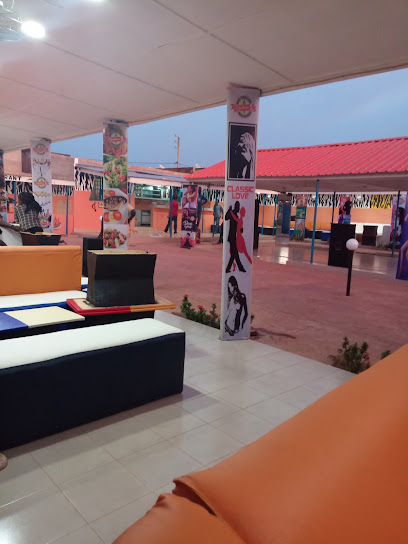
Maquis Bar Choco
Experience the vibrant local culture at Maquis Bar Choco, a beloved spot in Bobo-Dioulasso offering delicious drinks and lively atmosphere.
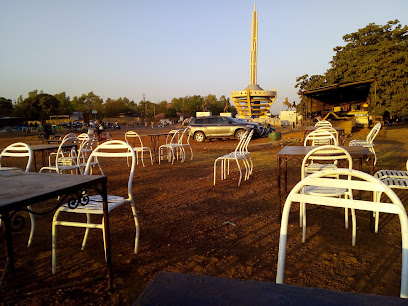
Bar Dancing L' Entente Terminus
Discover the lively nightlife of Bobo-Dioulasso at Bar Dancing L'Entente Terminus, where culture meets vibrant entertainment in an affordable setting.
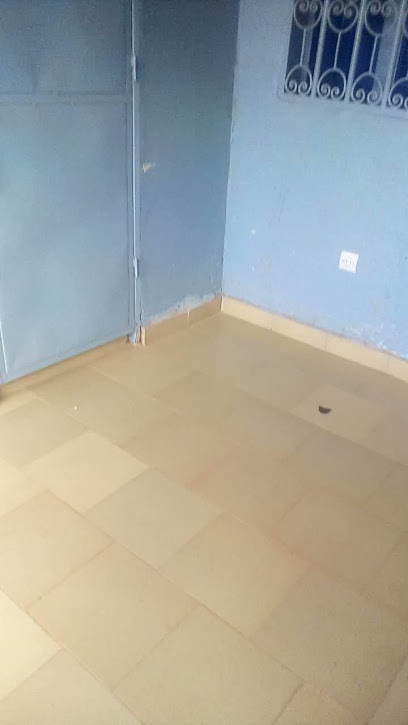
Le Buro
Experience the vibrant nightlife of Bobo-Dioulasso at Le Buro, a cozy bar offering affordable drinks and a welcoming atmosphere for all.
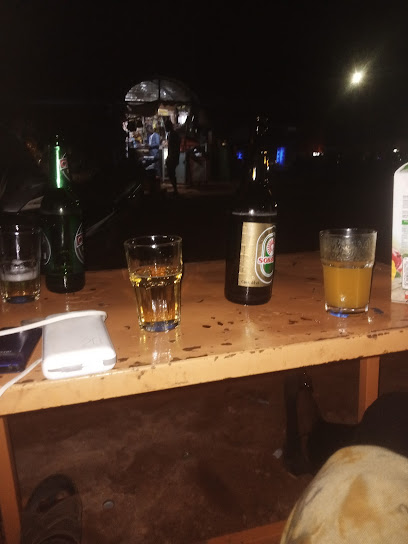
Délice bar
Discover the vibrant nightlife of Bobo-Dioulasso at Délice Bar, where refreshing drinks and a lively atmosphere await.
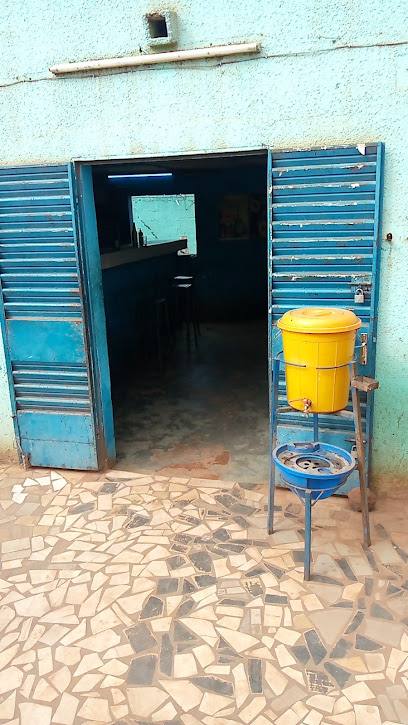
Bar-Restaurant LeTouba
Discover the vibrant energy and delicious flavors at Bar-Restaurant LeTouba in Bobo-Dioulasso, a must-visit spot for food and drink lovers.

Le NOIR-BLANC
Experience the vibrant nightlife of Bobo-Dioulasso at Le NOIR-BLANC, where karaoke meets local culture in an unforgettable setting.

Oberge
Experience the vibrant nightlife at Oberge, a lively bar in Bobo-Dioulasso, where local culture meets refreshing drinks and friendly faces.
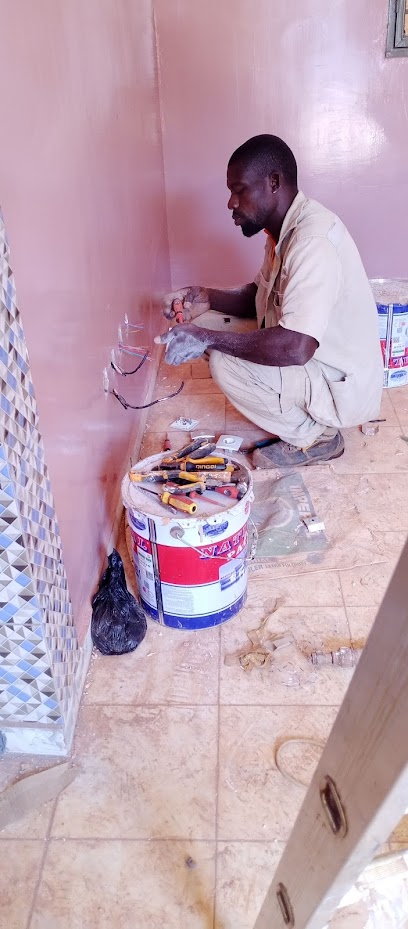
Bar Océan Atlantique
Discover the lively Bar Océan Atlantique in Bobo-Dioulasso, where refreshing drinks and a vibrant atmosphere come together for an unforgettable night.

KINGSWAY BAR DANCING RESTAURANT
Discover the lively Kingsway Bar Dancing Restaurant in Bobo-Dioulasso, where vibrant nightlife meets delicious local cuisine.
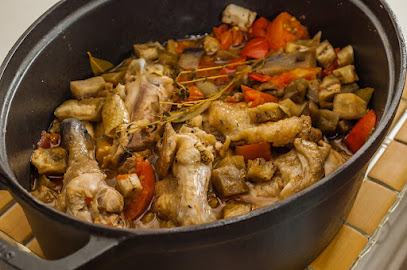
Maxima Bar
Discover the vibrant atmosphere of Maxima Bar in Bobo-Dioulasso, where refreshing drinks and local culture meet for an unforgettable experience.
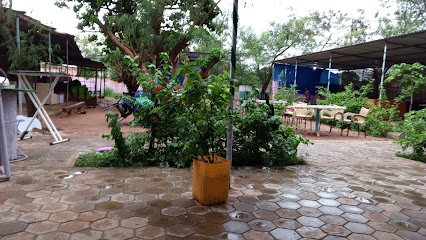
Millénium Bar Dancing
Discover the vibrant nightlife at Millénium Bar Dancing in Bobo-Dioulasso, where music and dance create unforgettable experiences.
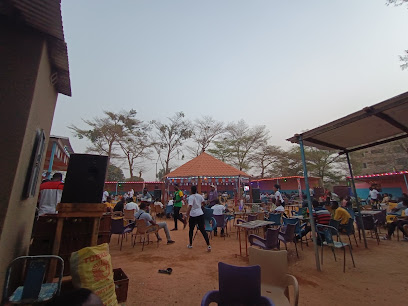
Gomez
Experience the vibrant nightlife of Bobo-Dioulasso at Gomez, where locals and travelers unite over drinks and live music.
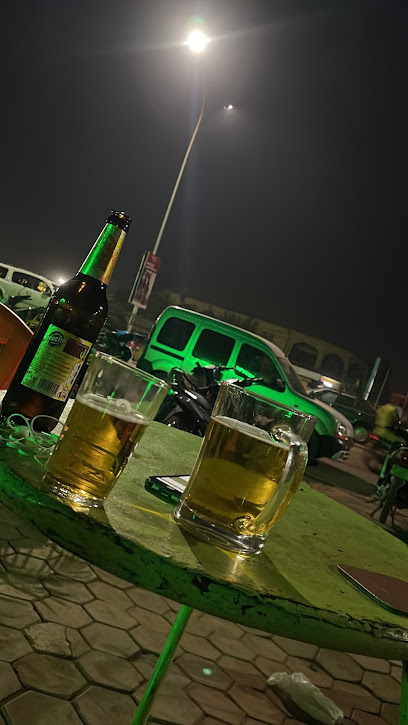
Rodrigue's bar
Experience the vibrant nightlife and local culture at Rodrigue's Bar in Bobo-Dioulasso, where every sip tells a story.

Local Phrases about Bobo-Dioulasso surroundings
-
- HelloSalut
[sa-LOO] - GoodbyeÀ la prochaine
[ah lah pro-SHEN] - YesOui
[WEE] - NoNon
[NOHN] - Please/You're welcomeS'il vous plaît/De rien
[seel voo pleh/duh RYAN] - Thank youMerci
[mehr-SEE] - Excuse me/SorryPardon/Désolé
[par-DON/deh-zoh-LEH] - How are you?Comment ça va?
[koh-MAN sa vah] - Fine. And you?Bien. Et toi?
[byan/eh TWAH] - Do you speak English?Parlez-vous anglais?
[par-lay voo ahn-GLAY] - I don't understandJe ne comprends pas
[zhuh nuh kohm-PRAHN pah]
- HelloSalut
-
- I'd like to see the menu, pleaseJe voudrais voir le menu, s'il vous plaît
[zhuh voo-DREH vwar luh meh-NOO, seel voo pleh] - I don't eat meatJe ne mange pas de viande
[zhuh nuh mahnzh pah duh vyand] - Cheers!Santé!
[sahn-TAY] - I would like to pay, pleaseJe voudrais payer, s'il vous plaît
[zhuh voo-DREH pay-YEH, seel voo pleh]
- I'd like to see the menu, pleaseJe voudrais voir le menu, s'il vous plaît
-
- Help!Au secours!
[oh seh-KOOR] - Go away!Allez-vous en!
[ah-lay voo zahn] - Call the Police!Appelez la police!
[ah-peh-lay lah poh-LEES] - Call a doctor!Appelez un médecin!
[ah-peh-lay ahn meh-deh-SAN] - I'm lostJe suis perdu(e)
[zhuh swee pair-DUH] - I'm illJe suis malade
[zhuh swee mah-LAHD]
- Help!Au secours!
-
- I'd like to buy...Je voudrais acheter...
[zhuh voo-DREH ash-tey] - I'm just lookingJe regarde juste
[zhuh ruh-GAHRD zhust] - How much is it?Combien ça coûte?
[kom-byen sa koot] - That's too expensiveC'est trop cher
[say troh shehr] - Can you lower the price?Pouvez-vous baisser le prix?
[poo-VEH voo bay-SAY luh pree]
- I'd like to buy...Je voudrais acheter...
-
- What time is it?Quelle heure est-il?
[kel uh-REH eh-TEEL] - It's one o'clockIl est une heure
[eel eh oon uh-REH] - Half past (10)Dix et demie
[dees ay duh-MY] - MorningMatin
[mah-TAN] - AfternoonAprès-midi
[ah-preh mee-DEE] - EveningSoirée
[swah-RAY] - YesterdayHier
[yehr] - TodayAujourd'hui
[oh-zhoor-DWEE] - TomorrowDemain
[duh-MAN] - 1Un
[uhn] - 2Deux
[duh] - 3Trois
[trwah] - 4Quatre
[kaht] - 5Cinq
[sank] - 6Six
[sees] - 7Sept
[set] - 8Huit
[wheat] - 9Neuf
[nuf] - 10Dix
[dees]
- What time is it?Quelle heure est-il?
-
- Where's a/the...?Où est...?
[oo eh] - What's the address?Quelle est l'adresse?
[kel eh lah-DREHS] - Can you show me (on the map)?Pouvez-vous me montrer (sur la carte)?
[poo-VEH voo muh mohn-TRAY (soor lah kart)] - When's the next (bus)?Quand est le prochain (bus)?
[kahnd eh luh proh-SHANG (boos)] - A ticket (to ....)Un billet (pour ...)
[uhn bee-YAY (poor)]
- Where's a/the...?Où est...?
History of Bobo-Dioulasso surroundings
-
Bobo-Dioulasso, the second-largest city in Burkina Faso, has a rich history dating back to the 15th century. It was originally inhabited by the Bobo and Dioula ethnic groups, who played significant roles in regional trade and politics. The city's name itself is derived from these two groups: 'Bobo' for the Bobo people and 'Dioulasso' which translates to 'home of the Dioula'.
-
During the late 19th and early 20th centuries, Bobo-Dioulasso came under French colonial rule. The French influence is still evident in the architecture and layout of the city. The colonial period saw the construction of significant infrastructures such as the railway line connecting Bobo-Dioulasso to the coast, which facilitated trade and movement.
-
Located just outside Bobo-Dioulasso, the Sacred Fish Pond of Dafra is an important cultural and spiritual site. It is believed that the catfish in the pond are sacred and must not be harmed. The pond is a pilgrimage site where people come to perform rituals and seek blessings, maintaining its importance through generations.
-
Koro Village, situated near Bobo-Dioulasso, is renowned for its centuries-old mosque built in the Sudanese architectural style. The mosque, constructed entirely from mud and wood, is a testament to the region's historical Islamic influence and architectural ingenuity. It remains a place of worship and a cultural heritage site.
-
Bobo-Dioulasso played a crucial role in the country's struggle for independence from French colonial rule. It was a hub for political activities and movements that eventually led to the independence of Burkina Faso in 1960. The city's residents actively participated in demonstrations and political discourse that shaped the nation's future.
-
Bobo-Dioulasso is famous for its vibrant musical heritage, particularly the balafon (a type of wooden xylophone) and the djembe drum. Traditional music and dance are integral to the cultural fabric of the area, with performances often accompanying festivals, ceremonies, and social gatherings, keeping the oral traditions alive.
-
The surroundings of Bobo-Dioulasso are predominantly agricultural, with many communities relying on farming for their livelihood. The fertile lands around the city produce crops such as millet, maize, and sorghum. The agricultural practices and traditional methods have been passed down through generations, contributing to the region's economic stability.
Bobo-Dioulasso surroundings Essentials
-
Bobo-Dioulasso is accessible via Bobo-Dioulasso Airport (BOY), which offers domestic flights and some international connections. The airport is located about 5 kilometers from the city center. Alternatively, you can travel by bus or car from the capital, Ouagadougou, which is approximately a 5-hour drive. There are several bus companies offering regular service between the two cities.
-
Within Bobo-Dioulasso, you can get around using taxis, which are readily available and reasonably priced. For a more local experience, try using moto-taxis. Public buses and minibuses (known as 'bush taxis') connect the city with surrounding villages and towns. Renting a car is also an option but be prepared for varying road conditions.
-
The official currency is the West African CFA franc (XOF). Credit cards are accepted in some hotels and larger restaurants, but it is advisable to carry cash, especially in smaller establishments and rural areas. ATMs are available in Bobo-Dioulasso, although it is wise to withdraw sufficient cash before traveling to more remote areas.
-
Bobo-Dioulasso is generally safe for tourists, but it is advisable to take standard precautions. Avoid walking alone at night and be cautious in crowded places. Areas around the main bus station and some markets have higher rates of petty crime. Always keep an eye on your belongings and avoid displaying valuables.
-
In case of emergency, dial 17 for police assistance and 18 for fire services. For medical emergencies, dial 15 to reach an ambulance. Bobo-Dioulasso has several hospitals and clinics, including Centre Hospitalier Universitaire Souro Sanou. It is recommended to have travel insurance that covers medical emergencies.
-
Fashion: Do dress modestly, especially when visiting religious sites. Avoid wearing revealing clothing. Religion: Do respect local customs and traditions. Remove your shoes when entering a mosque. Public Transport: Do be respectful and give up your seat to elderly passengers. Don’t eat or drink on public transport. Greetings: Do greet people with a handshake or a slight bow. Using the right hand for greetings and giving items is considered polite. Eating & Drinking: Do try local dishes and accept food offerings graciously. Don’t refuse hospitality, as it is considered impolite.
-
To experience Bobo-Dioulasso like a local, visit the Grand Marché for fresh produce and traditional crafts. Engage with locals at the Kibidwé and Dioulassoba neighborhoods, which offer a glimpse into the city's rich history and culture. Don’t miss the chance to attend a performance of traditional music and dance, often held in local cultural centers.
Trending Landmarks in Bobo-Dioulasso surroundings
Nearby Cities to Bobo-Dioulasso surroundings
-
Things To Do in Dédougou
-
Things To Do in Wa
-
Things To Do in Koudougou
-
Things To Do in Ouagadougou
-
Things To Do in Ouahigouya
-
Things To Do in Ziniaré
-
Things To Do in Tamale
-
Things To Do in Bamako
-
Things To Do in Sunyani
-
Things To Do in Yamoussoukro
-
Things To Do in Daloa
-
Things To Do in Kumasi
-
Things To Do in Sanniquellie
-
Things To Do in Abidjan
-
Things To Do in Voinjama







